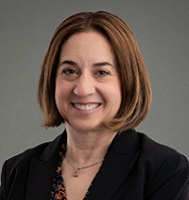Dr. Levy is trained in both pediatric and adult medicine. Her clinical interests include cystic fibrosis, transition from pediatric to adult care, and diagnostic dilemmas.
After her undergraduate studies at Stanford University, Levy earned her MD at the Medical College of Wisconsin and her Master of Medical Sciences at Harvard Medical School. She completed her clinical fellowship in Pulmonary Medicine at Children’s Hospital Boston and prior to fellowship her residency in Internal Medicine and Pediatrics at the Medical College of Wisconsin.
In addition to treating patients, Levy’s work at the University of Wisconsin School of Medicine and Public Health include translational research into the cellular and molecular underpinnings of clinical heterogeneity and response to airway infection in cystic fibrosis. Specifically, Levy’s research investigates how immune responses in persons with cystic fibrosis may be epigenetically modified with exposure to airway infection. Her lab uses multiple in vitro approaches to dissect the genetic and epigenetic components of defining the immune response and possible dysregulation with the goal of more precisely defining a cystic fibrosis patient’s clinical course and treatment response. She spearheads several research projects and has co-authored more than 35 peer-reviewed publications.
Research Highlight
Project title: Enriching CF Newborn Screening Outcomes through a Precision Personalized Medicine Strategy
Epidemiological studies provide a foundation for Dr. Levy’s research funded by the Rosenau Family Research Foundation to explore the epigenomic underpinnings that contribute to clinical outcomes among children with cystic fibrosis (CF). The aim of this work is to relate molecular signatures to CF-NBS implementation and expect our research to enhance understanding, diagnosis, and targeted treatment of CF respiratory infections and their complications, with potential applications to other chronic airway conditions.
Significant advances in early diagnosis through newborn screening (NBS) and genotype characterization have greatly enhanced the quality of life for children with CF. However, underrepresented populations have not benefitted equally from these advancements, nor have White patients for reasons that are unknown. Notably, while CF has traditionally been perceived as a disease predominantly affecting White individuals, recent evidence indicates that approximately 20% of NBS-diagnosed cases in the U.S. occur in African American, Hispanic, and other minority populations. Unfortunately, these groups face disparities, including significant delays in diagnosis — often being older at the time of their first evaluation at CF care centers compared to White infants — and poorer treatment outcomes, such as more frequent pulmonary exacerbations at a young age.
Moreover, patients from minoritized backgrounds are more likely to have unidentified CFTR mutations, even though 75-80% of those eligible for treatment with CFTR modulators are from these populations. This highlights the need for NBS to incorporate additional components to identify patients with CF who are not detected by standard screening for CFTR mutations.
Inspired by the Wisconsin NBS Project, our research investigates the molecular basis for disparate pulmonary outcomes in children with CF, specifically focusing on Pseudomonas aeruginosa (Pa) respiratory infections. Our previous studies have shown that children with CF exhibit changes in inflammation-related transcripts correlating with disease status. We, along with others, have identified impairments in monocyte and macrophage functions in CF, which are not corrected by CFTR modulators. While most research has concentrated on genetic mutations and epigenetic modifications, few studies have explored how differential gene expression profiles may affect susceptibility to respiratory diseases. Using CF airway infections as a model system we will uncover fundamental pathways that impact lung immune responses and potential targets for therapeutic intervention.
Research News
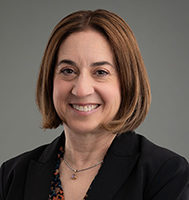
Rosenau Family Research Foundation awards Hara Levy a grant to study a personalized approach to cystic fibrosis lung disease treatment
The Rosenau Family Research Foundation has awarded a research grant to Hara Levy, MD, MMSc, professor in the Division of Pulmonology and Sleep Medicine, Department of Pediatrics, within the University of Wisconsin School of Medicine …
June 3, 2025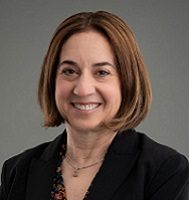
Hara Levy receives grant from Rosenau Family Research Foundation to study a personalized medicine approach to lung disease in cystic fibrosis patients
Hara Levy, MD, MMSc, professor, Division of Pulmonology and Sleep Medicine, was recently awarded a three-year, $375,000 grant from the Rosenau Family Research Foundation for the project “Enriching CF Newborn Screening Outcomes through a Precision …
January 14, 2025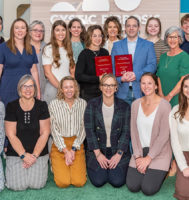
Pediatric Cystic Fibrosis Program recognized with Outstanding Care Center Partnership Award
The UW Health Cystic Fibrosis Center, both its pediatric and adult programs, received the Cystic Fibrosis Foundation’s 2024 Outstanding Care Center Partnership Award. The annual award was established to recognize the care centers and their …
October 21, 2024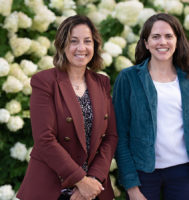
UW Health Cystic Fibrosis Center continues cutting-edge research and transformative treatments for patients
This article is part two of a two-part series on cystic fibrosis research and care at the University of Wisconsin. Part one featured the Wisconsin Cystic Fibrosis Neonatal Screening Project at its 40-year anniversary and …
September 13, 2024
16 department members receive Research and Development Awards during fall/winter funding cycle
The Department of Pediatrics provided department members with a total of $167,611 during the fall/winter award cycle of its Research and Development (R&D) Awards. The purpose of the R&D Awards fund is to support research …
May 7, 2024- More Levy Research Group News posts
